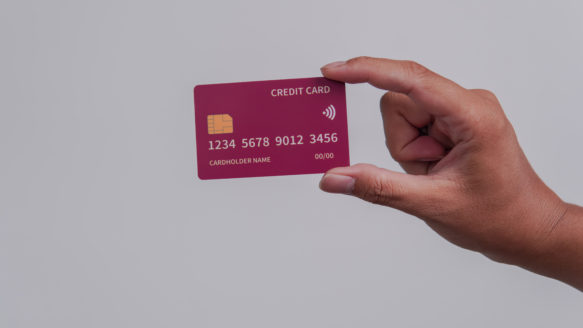
How to Avoid Bankruptcy: What You Need to Know and Do Before it’s Too Late
If you’re confronting the daunting prospect of bankruptcy, it’s important to remember that you’re not alone. Facing financial difficulties, especially the possibility of bankruptcy, can be an incredibly stressful experience. At Money Mentors, we understand and empathize with the struggles that lead people to consider this significant step.
This post aims to shed light on what bankruptcy really entails in Alberta, emphasizing why and how it should be avoided. Through the inspiring stories of Mickey and Teresa, who overcame substantial debts without resorting to bankruptcy, we illustrate the effectiveness of alternative solutions and disciplined financial management. We’ll explore various options available in Alberta, from the Orderly Payment of Debts program to consumer proposals, and delve into the importance of cultivating healthy financial habits.
Remember, seeking help is a crucial step towards regaining control of your finances, and Money Mentors is here to offer free, unbiased guidance for all Albertans. Let’s navigate these challenges together and pave the way to a debt-free life.
In this article, we’re going to cover:
Ways to Avoid Bankruptcy
Options Other than Bankruptcy
Why You Should Avoid Bankruptcy
Embracing Financial Wellness: Key to Avoiding Bankruptcy
Avoiding Bankruptcy with Money Mentors
Ways to Avoid Bankruptcy
Avoiding bankruptcy is crucial to maintaining financial health and stability. Here are several strategies utilized by both Mickey and Teresa:
- Understand the Extent of Your Debt
- Seek Professional Advice and Support
- Create a Budget and Prioritize Payments
- Cut Impulsive Spending
- Sell Your Assets
- Negotiate with Creditors or Seek Formal Debt Relief Options
- Commit to the Plan and Stay Disciplined
Like Mickey, who faced $120,000 in debt, it’s vital to assess your total debt. This understanding enables you to create a plan that’s realistic for your situation. Mickey’s journey began with recognizing the extent of his debt, the need to change his spending habits, and seeking help.
Not all debts are the same, gambling debt is different to credit card debt which is different to payday loan debt. Understanding the extent of your debt will allow you to make the appropriate plan and know which debt to pay off first.
Both Mickey and Teresa benefited from the guidance of Money Mentors credit counsellors. Professional advice can provide a clear path forward and help you explore alternatives to bankruptcy, such as debt consolidation.
Mickey’s counsellor helped him develop a budget, allocating $100 spending money from Monday to Friday. This budgeting exercise allowed him to prioritize his debt payments, allowing him to stick to his debt repayment plan.
Teresa’s journey highlighted the importance of quitting impulsive shopping, leading to less buyers remorse and an all round better money mindset. Learning to differentiate between needs and wants and resisting unnecessary purchases was key to her financial turnaround.
Selling non-exempt assets could provide funds to repay debts. When facing financial hardship, selling assets like property, vehicles, or investments could provide a substantial influx of cash. This approach can be particularly appealing to your creditors, as it often leads to a quicker repayment.
However, it’s important to consider the potential downsides of this strategy. In the urgency to repay debts, you might find yourself in a position where you have to sell assets quickly, potentially receiving less than their full market value.
Teresa, facing over $106,000 in debt, found relief through the Orderly Payment of Debts (OPD) program, a formal debt relief option. The OPD program allowed her to consolidate her debts and make manageable payments, avoiding the need for bankruptcy.
Whichever option you choose to avoid bankruptcy, it’s important that you stick to the plan and stay disciplined. The success of Mickey and Teresa was largely due to their commitment to the plans laid out by their counsellors and staying disciplined in their financial habits. Remember, you’re not alone and Money Mentors’ accredited, unbiased counsellors are always here to help.
Options Other than Bankruptcy
Exploring alternatives to bankruptcy is crucial for those facing significant debt. Here are some options available in Alberta:
Informal Alternatives:
Debt Consolidation Loan: This option allows you to combine multiple debts into a single monthly payment. It’s typically managed by financial institutions and can offer lower interest rates than your current debts.
Debt Management Plan: A credit counsellor mediates with your creditors to devise a feasible repayment plan. This plan often involves consolidating unsecured debts into a single payment, sometimes with interest relief.
Formal Alternatives:
The Orderly Payment of Debts (OPD) Program: This federally-legislated program in Alberta consolidates debts with a fixed interest rate of 5%. It offers the added benefit of ongoing support and financial literacy resources from qualified credit counsellors, helping clients build better financial habits.
Consumer Proposal: This is a legally binding agreement between you and your creditors, facilitated by a Licensed Insolvency Trustee. It allows debtors to settle their debts for less than they owe, and is suitable for individuals with less than $250,000 in debt (excluding mortgage debt).
Both Mickey and Teresa chose the Orderly Payment of Debts (OPD) program as their path to financial recovery. This decision was influenced by the program’s structured approach to debt repayment, which offered them a clear, manageable plan. For Mickey, the OPD program’s fixed 5% interest rate and consolidated monthly payments provided a way to pay off his $120,000 debt. Teresa benefited similarly, finding relief from her $106,000 debt burden. The program not only facilitated their debt repayment but also imparted valuable financial management skills. This approach empowered them to regain control over their finances, leading to a debt-free life and a more stable financial future.
Why You Should Avoid Bankruptcy

Bankruptcy, while a legal avenue to address overwhelming debt, comes with several significant drawbacks that can impact your financial and personal life:
Impact on Credit and Future Financial Opportunities
Bankruptcy can severely affect your credit report, remaining there for approximately six years after discharge. This long-term impact can make it challenging to secure favorable credit or loans in the future, hindering opportunities like purchasing a home or a car.
Potential Loss of Assets
Filing for bankruptcy might require you to surrender valuable assets to repay your creditors. This could include personal property or investments, and in some cases, it might even result in the loss of professional licenses, affecting your ability to work in your chosen field.
Effect on Joint Assets and Debts
If you have joint assets or debts, bankruptcy will also affect the other parties involved. For instance, if you jointly own a property, you might have to sell your share or arrange for someone to buy it to pay off your debts.
Challenges in Rebuilding Credit
After completing bankruptcy, rebuilding your credit can be a challenging process. You might face higher interest rates, making it more difficult and expensive to borrow in the future.
Ethical Considerations
Many people feel a duty to repay their debts fully. Options like the Orderly Payment of Debts program, chosen by individuals like Mickey and Teresa, often align better with this ethical standpoint, as they allow for full repayment of debts under more manageable terms such as the fixed 5% interest rate.
Embracing Financial Wellness: Key to Avoiding Bankruptcy
It’s crucial to recognize how adopting a healthy financial mindset is integral in preventing bankruptcy and addressing the underlying issues that may lead to financial distress. Changing your money mindset – your core beliefs and attitudes about money – is more than just a financial strategy; it’s a transformative journey towards financial resilience.
Reflect on Your Financial History
Begin by understanding your past relationship with money. This includes the financial habits you observed in your childhood and your early experiences with managing money. Acknowledging these influences helps in identifying patterns that may have contributed to your current financial situation.
Cultivate a Positive Money Mindset with Money Mantras
Shift your perspective to a more positive outlook. This step is about transforming how you think and talk about money. Replace negative thoughts with money mantras or affirmations that reinforce responsible money management, mindful spending, and achievable financial goals.
Align Spending with Your Financial Values
Identifying your financial values and goals is a powerful step towards saving and avoiding unnecessary debt. Let these values guide your daily financial decisions, aligning them with your long-term aspirations for a stable, debt-free life.
Monitor and Adjust Your Spending Habits
Vigilance in tracking your expenses is key. Understand what triggers your spending and recognize patterns. This awareness is critical in altering habits that may lead to financial strain.
Commit to Sustainable Financial Habits
This final step is about commitment. Draw inspiration from success stories, like those of Mickey and Teresa, and use resources to educate yourself on financial management. Develop a budget that reflects your new, healthier approach to handling money.
Avoiding Bankruptcy with Money Mentors
While bankruptcy can offer a temporary solution, its long-term consequences on your credit, assets, and personal life are significant and often detrimental. The importance of understanding the extent of your debt, exploring alternatives like the Orderly Payment of Debts (OPD) program, and adopting healthy financial habits cannot be overstated. Real-life examples like Mickey and Teresa, who successfully navigated away from the brink of bankruptcy through disciplined budgeting and the OPD program, demonstrate the effectiveness of these alternatives.
The most crucial step you can take when facing debt problems is to seek help as early as possible. Receiving unbiased advice from a non-profit credit counsellor is invaluable in these situations. At Money Mentors, we offer free, comprehensive credit counselling for all Albertans, guiding you through your options and helping you to make informed decisions about your financial future. Remember, the sooner you seek help, the more options you’ll have to regain control of your finances and embark on a path to a secure, debt-free life.
Have questions?
Need more information or want to talk to a certified financial counsellor for peace of mind? Let us help.
Call 1-888-294-0076 or book an appointment. It’s free for all Albertans.








